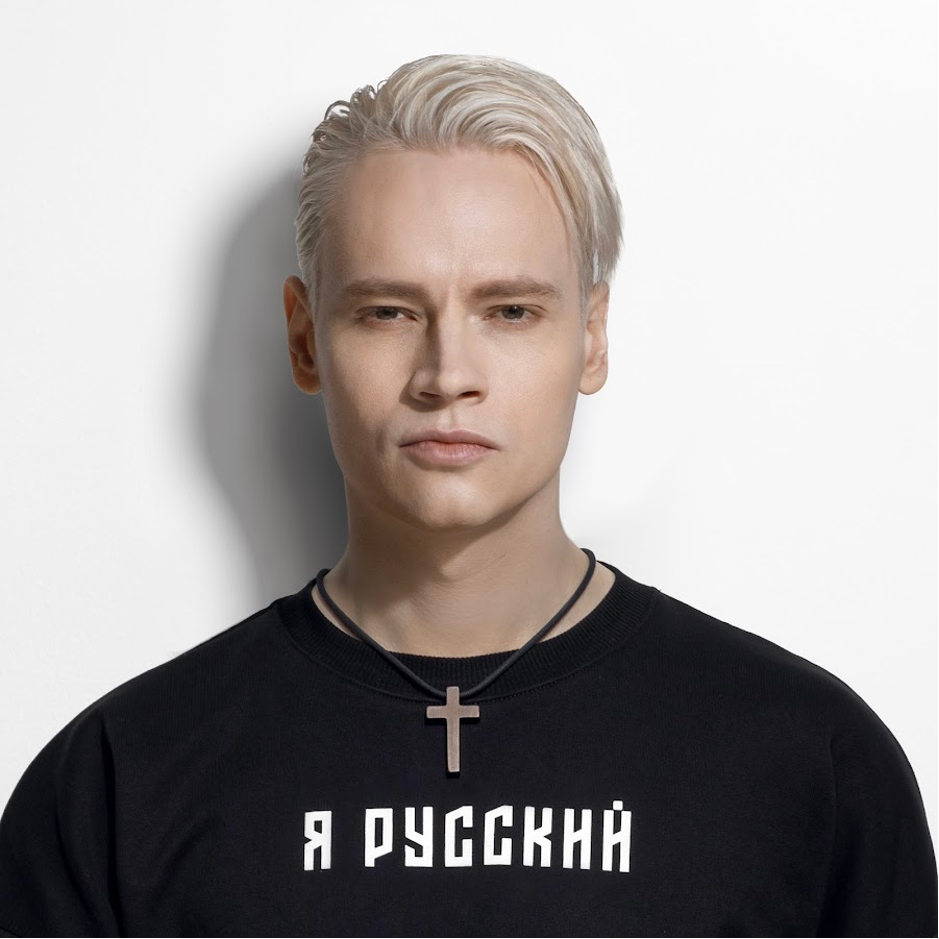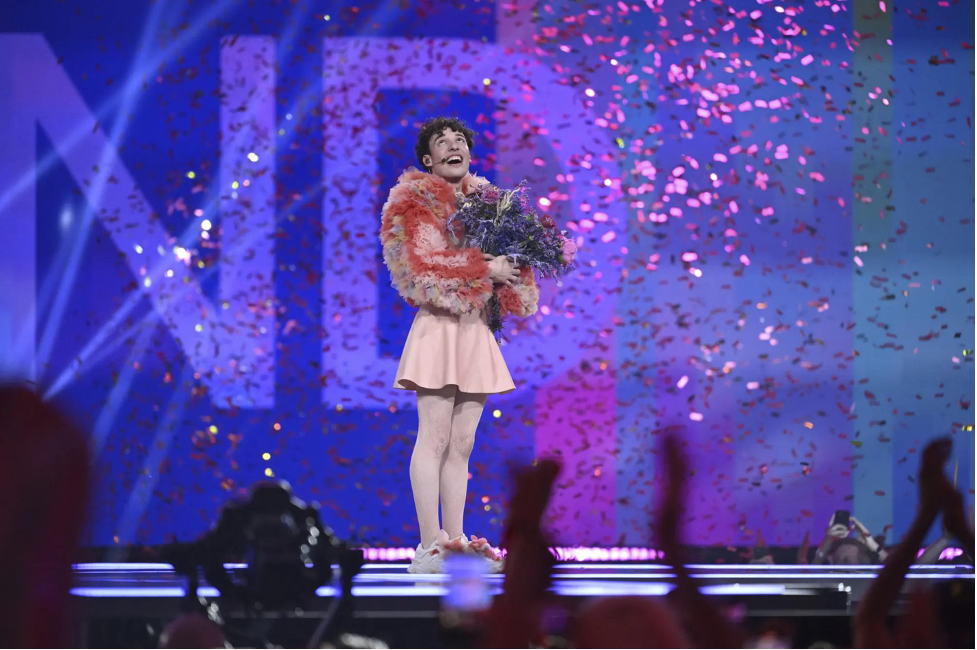Russian patriotism – a concert visit
Russian patriotism is not limited to military parades, veterans and patriotic speeches, but lives in society – with pop, rock and cult: its god is called Shaman.
Peter Hanseler

Introduction
When I told Maria that I wanted to see Shaman live before our summer trips, she was amazed, her parents – both in their 70s – were thrilled and so we bought four tickets for a concert in Chekhov, which is situated at the outskirts of Moscow as Schwammendingen is located at the outskirts of Zurich. In Moscow, that is 80 kilometers from the center.
This short article is not just about Shaman – Russia’s patriotic cult rocker – but about Russian patriotism, which is deeply interwoven with the Russian soul and has nothing to do with nationalism, but with a sincere love for one’s own country and its culture.
At the end of this article, a mocking sideways glance at the role models in Western Europe seems more than appropriate.
Shaman – «I am Russian»
A few weeks ago, Masha and I cleared books in and out, sorted them, said goodbye to many of them and shelved new ones with the joyful anticipation of the unread; a lot of work. It’s easier with music.
Masha was responsible for the music. The first song I heard from Shaman was one of his greatest hits. Hard to believe for a Westerner, but it’s the Russian national anthem. He sings the first verse a cappella, but how. Listen for yourself.
Shaman is not only good-looking, he also has a killer voice and soon I put the books aside and we watched YouTube videos of Shaman – Russian cultural education of a pleasant kind.
Shaman is not just anyone, but a cult figure in the giant empire. The son of a musician, born in Tula, one of the 13 hero cities of the Great Patriotic War, 220 km from Moscow, he studied music at a top conservatory, the Gnesin Institute in Moscow.
The concert
Shaman fills stadiums, but our concert took place in a small arena. The audience couldn’t have been more mixed. Everyone from three-year-old toddlers to great-grandmothers was there – we were in the middle of the field.
You would have thought that after the attack on the Crocus concert hall on March 22 there would be strict security checks and that people would avoid concerts, but it is as I expected shortly after the attack: The Russians are not intimidated and the controls were like at concerts I had attended before the attack – friendly, efficient and not reminiscent of an airport.
The atmosphere was relaxed, informal and the spectators showed consideration for the youngest and the oldest. It is striking how civilized things are at major events in Russia. Incidentally, this has nothing to do with oppression, but simply with manners.
The concert was a blast and, as always at a live concert, the atmosphere is incomparable. We were all thrilled.
The big hits of Shaman are – also due to the patriotic mood in the country – the following songs:
«Встанем» – We stand up
«Я Русский» – I am Russian
But love ballads are also part of the repertoire – to kneel down to.
«ТЫ МОЯ» – You are mine
Patriotism – not nationalism
Patriotism cannot be bought, it has to be earned by a country. It is the most important moral currency of a state, the melting point of its history and culture. Patriotic people are united, even if they may not always agree with the leadership of their country. The object of patriotism is the country and not its government. I see this myself in my family – we are not always in agreement, but we are patriots. Patriotism therefore has to do with love for one’s country and its energy is always a positive one.
In contrast, nationalism is not based on unity, but on an exaggerated sense of value of the “own” in strict distinction to the “others”. It is downright imposed or often bought with hatred. In a nationalist atmosphere, citizens are presented with a choice: You are with us or against us. This has nothing to do with love for the country, but with cadaverous obedience to the country’s leadership. The history of the German national anthem is a prime example of how thin the line is between patriotism and nationalism. The “Song of the Germans”, born out of love for the homeland, for one’s own country, against foreign territorial claims, became a nationalist anthem through the misuse of patriotic ideas with the clear statement, “We are number one and better than everyone else!”.
That is the big difference.
Russians are extremely open to the rest of the world and are highly appreciated and respected worldwide for this great mentality – except by the West. The strong patriotism that we can feel in songs like “Я Русский” – (I am Russian) or “Встанем” – (We stand up) is a sign of strength and not of hatred.
Of course, Shaman is portrayed in the West as a tool and propaganda child of the Kremlin and everything is done to depict this great singer in a negative light. You can’t imagine how the Russians don’t give a damn about articles like those in Stern or the NZZ.
And what does the West find cool and desirable?

Switzerland is thrilled that Nemo, the Swiss candidate, won the Eurovision Song Contest a few days ago.
Nemo is characterized by the fact that he – or rather “it” or whatever – appeared in a pink skirt and outed himself as “non-binary”. He therefore does not identify with any gender and feels neither male nor female.
I think it’s absolutely okay for everyone to be what they want.
In my opinion, the problem is that such phenomena are becoming role models in our society. Or are they being made? The whole of Europe is excited about a fringe figure who doesn’t know what or who it is.
While Russia celebrates a virile patriotism with an effigy of a man who has a magnificent voice and a fundamental musical education, Western Europe pays homage to a creature that claims not to know whether it is a man or a woman and looks – to put it diplomatically – difficult to relate to with its little pink dress.
Russian society makes a man the embodiment of patriotism, he doesn’t wear a pink skirt and knows what he is. In Russia, he is a “man’s man”, as the Americans like to say, a man who has the ladies at his feet and is also loved by men. The epitome of a “man’s man” in the West is George Clooney, for example – he also doesn’t wear a pink skirt.
Conclusion
The fact that Europe chooses a non-binary creature as the winner of its song contest is a sign of the complete lack of orientation, moral disorientation and neglect that has gripped Western European societies.
How glad I am that my son is an adult. I imagine how I would have to explain to a child or adolescent with a certain seriousness why such a creature is a popular hero and role model in Western Europe and what is supposed to be great about it – it’s not.
25 thoughts on “Russian patriotism – a concert visit”